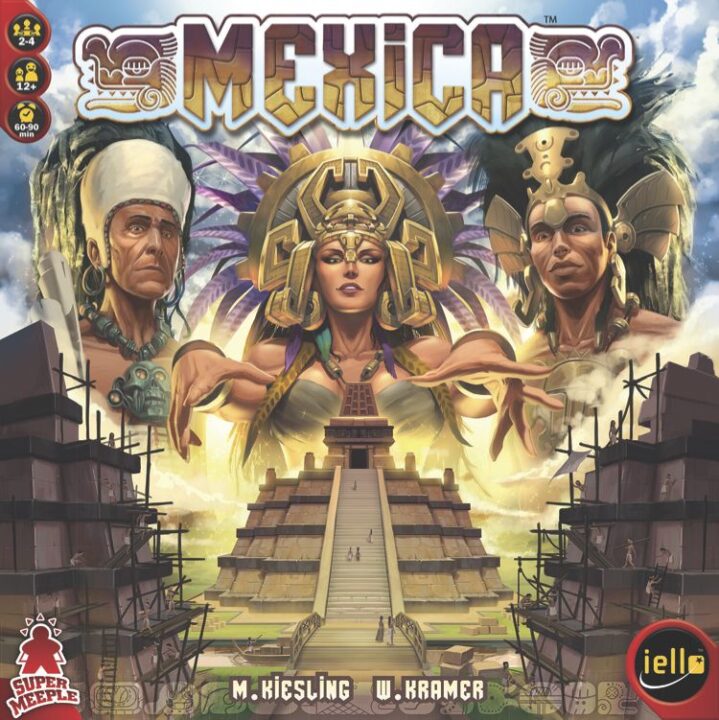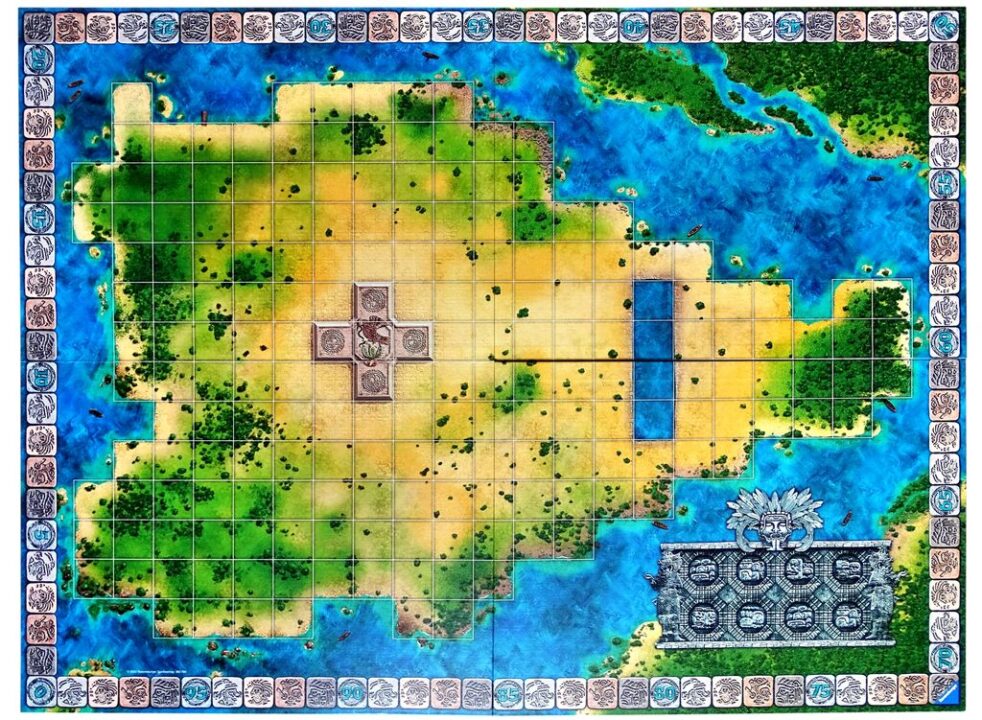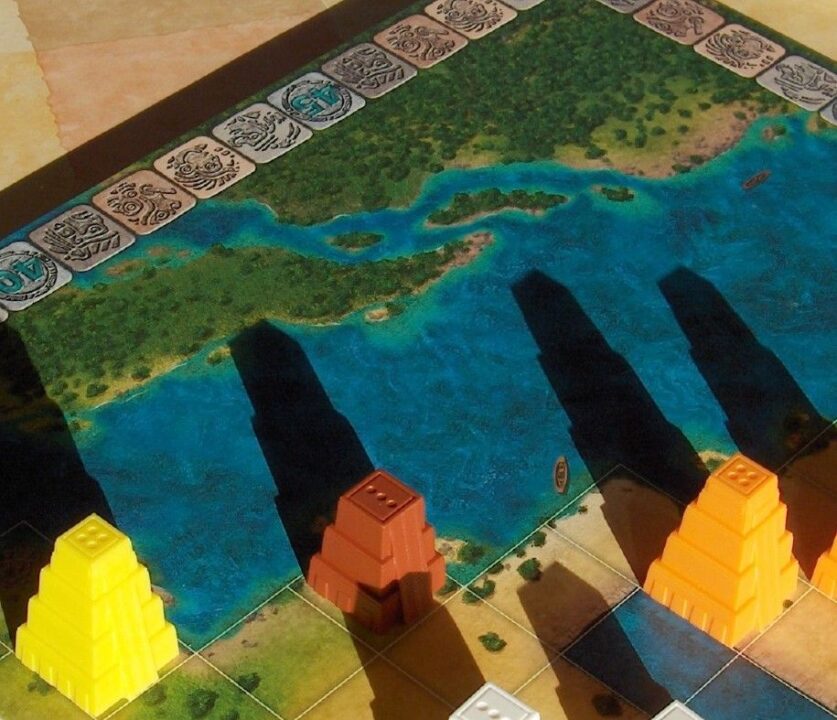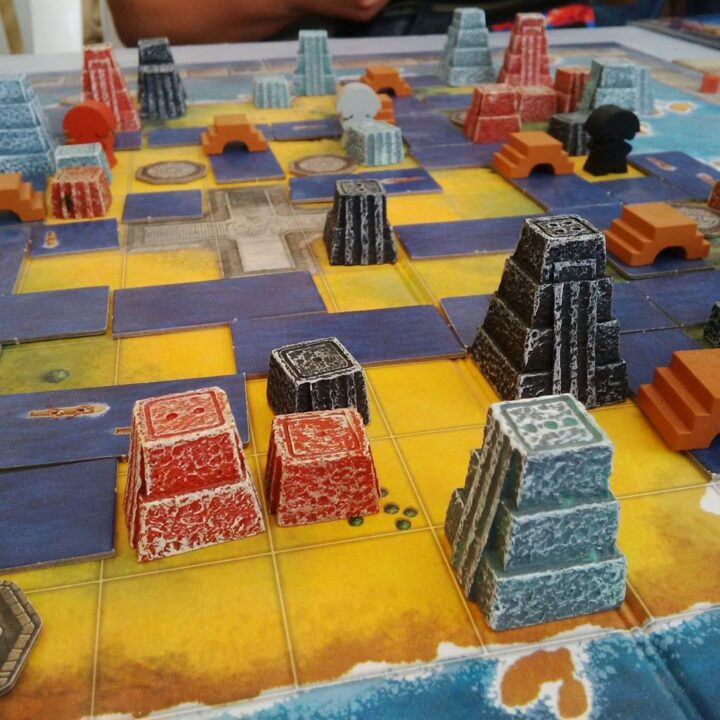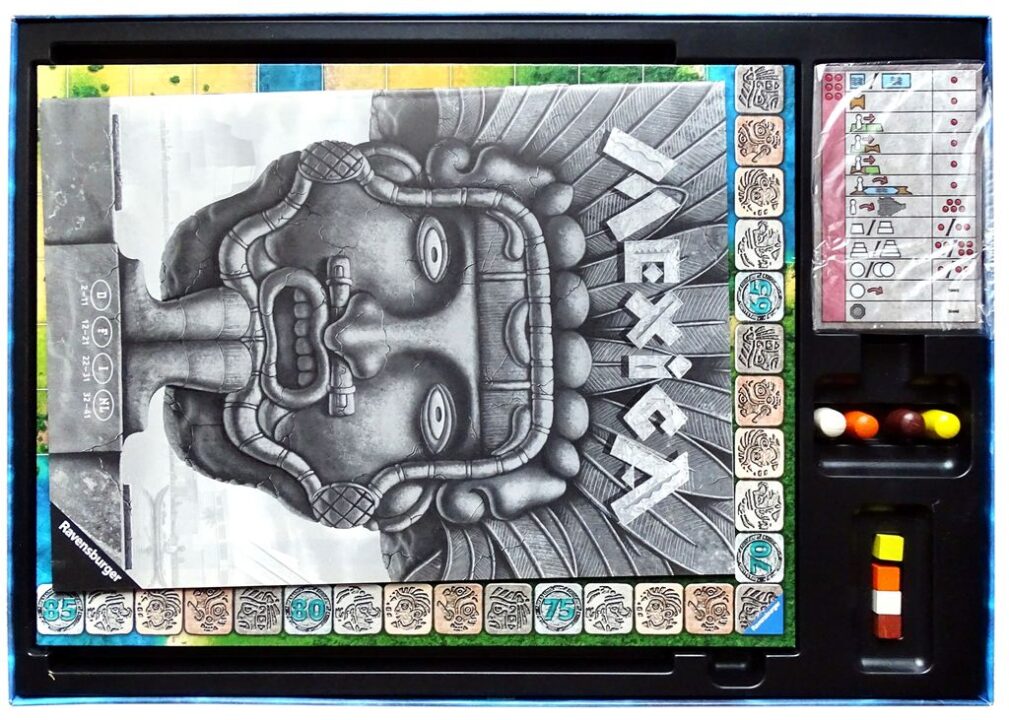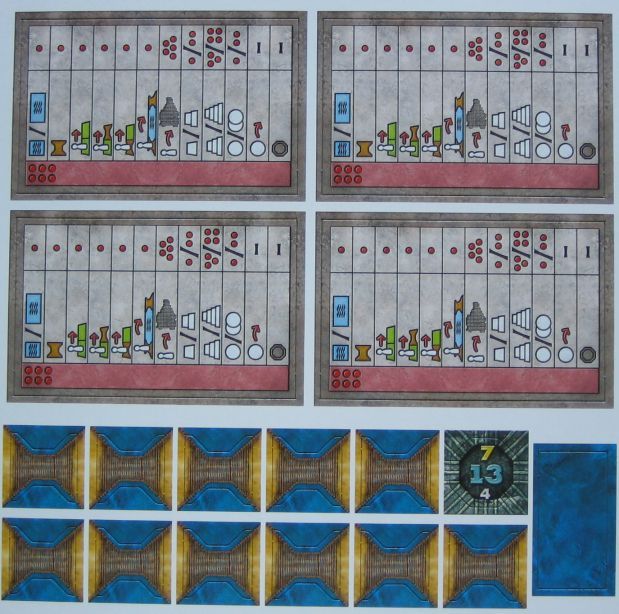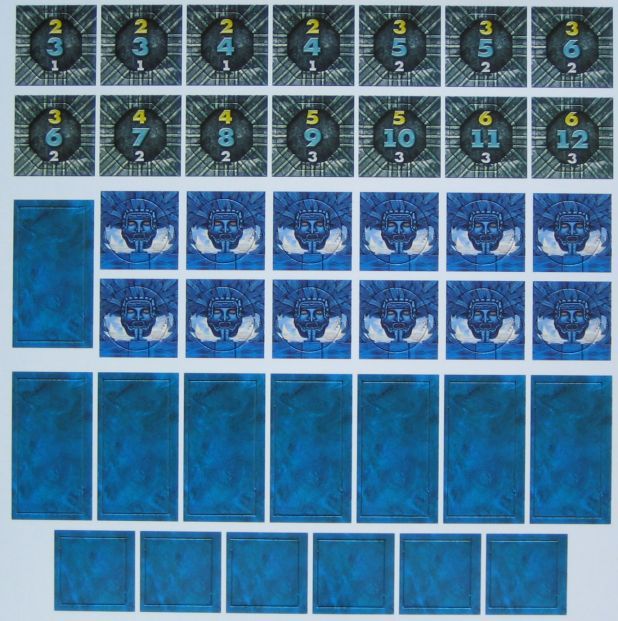Welcome to my review of Mexica! If you’re after a clever game where you carve up a city, plot canal routes, and outwit your friends at every turn, pull up a seat. I’ve played this beauty with my own group—sometimes they forgive me for winning, sometimes they don’t. Between the chunky pieces, eye-popping board, and a ruleset that rewards brains over blind luck, this is one game that deserves a spot on your shelf—or at least on your kitchen table while you secretly curse your most devious friend. Ready to find out if it’s worth your game night? Let’s get stuck in.
How It Plays
Setting up
First, unfold that gorgeous map of ancient Tenochtitlan. Each player grabs their little temple tokens and matching Mexica pawn. Shuffle those district cards, hand them out, and put the canal tiles and bridges within arm’s reach. I’d suggest snacks too, but that’s not in the rulebook.
Gameplay
On your turn, you get 6 action points to spend however you like. Use them to move your pawn, dig canals, build bridges, or slap down a temple (not literally—temples don’t bounce well). You’ll claim land, create districts, and sometimes curse your friend as they build a canal right where you needed it. There’s jostling for the biggest temple in each district, and sneaky plays galore.
Winning the game
After two scoring rounds, whoever’s got the most points wins. That usually means the player with the most and fanciest temples in the biggest districts. If you planned ahead and out-maneuvered your friends (and avoided any canal-related blunders), you’ll be crowned the true ruler of Mexica. No sombrero required, but I always wear mine for luck.
Want to know more? Read our extensive strategy guide for Mexica.
Area Control & Player Interaction: The Heartbeat of Mexica
I love a good area control game. It’s like being a tiny city planner, but with more shouting and less paperwork. Mexica is one of those rare games that really gets this part right. In Mexica, you and your buddies fight (in the friendliest way possible, of course) to divide the islands of an ancient city into districts. It sounds simple. But trust me, it’s a real brain-burner—especially if you have friends like mine who can’t resist blocking your every move just because they “felt like it.” Yes, Brad, I’m talking about you.
The player interaction in Mexica is constant and, honestly, a bit spicy. Every turn, you see what others are plotting, and you can almost taste the passive aggression building in the air. Whenever someone scores a big area or walls off a perfect district, you can hear the collective groan around the table. I once saw my quietest friend unleash a sneaky canal move that made everyone look at him suspiciously for the rest of the night. That’s what Mexica does—it brings out your inner board game villain, but with just enough fun that no one storms off (except for that one time, but we won’t talk about it).
What makes Mexica special is how little luck is involved. It’s all about skill, forward thinking, and sometimes taking ridiculous risks just to annoy your friends. The game is fair, tough, and promotes real interaction every single turn. Next up, I’ll check out if those snazzy pieces and board can handle all this backstabbing (spoiler: I might have drooled on the board).
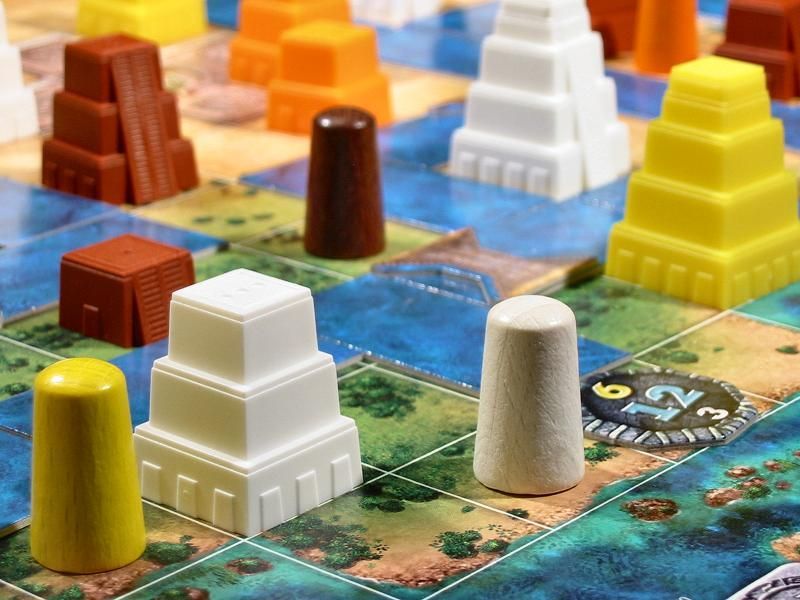
MEXICA: Component Quality and Board Design – A Visual Fiesta
First off, let me admit: I’m a sucker for a good-looking board. If a board game sits on my table looking like a piece of fine art, I’m halfway in love already. Mexica does not dissapoint. The board bursts with vibrant colors and sharp lines, making ancient Tenochtitlán come alive. As you build canals, plop down those chunky bridges, and score districts, the game starts to look like a little city straight out of a history book… if said book was illustrated by someone who thought more was more.
The components too are rock solid. The plastic pyramids feel sturdy and add a cool third dimension to the flat board, making every scoring round a visual treat. Even the player markers deserve a shout-out. While not ultra-fancy, they’re easy to handle and don’t go skidding across the table if someone sneezes. The tiles fit nicely on the board, which is more than I can say for a few games lurking in my closet.
One minor nitpick: the box insert is a bit meh. If you’re like me and you like putting everything away all organized and neat, you’ll probably end up using your own plastic bags or a fancy 3D printed insert off Etsy. Still, it’s a small price to pay for a game that looks and feels this good.
Overall, Mexica’s visuals and bits absolutely help the theme come to life, while keeping the table tidy and inviting. Next, I’ll spill the beans on whether Mexica rewards clever moves or just who got lucky with their wrist-flicking skills!
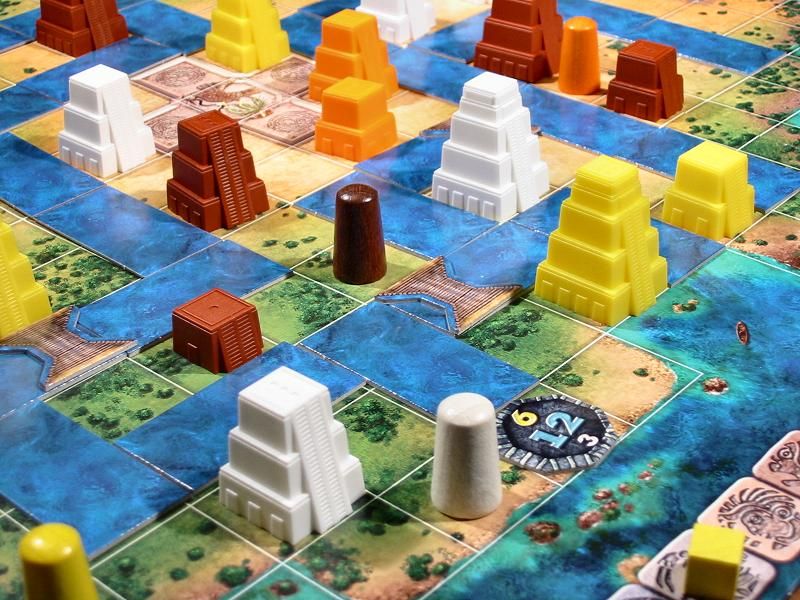
Strategic Depth versus Luck Factor in Mexica
Let’s just say, if I wanted to win Mexica by being lucky, I’d also expect my pet cat to start playing chess. Mexica is all about smart moves and plotting like a soap opera villain. From the very first turn, you need to think several steps ahead—sometimes even out-foxing yourself in the process. The way you place your canals, claim districts, and wrestle for control has real weight. Every action point feels precious, and the tension builds as the game board changes with every decision.
I’ve played with both my over-thinking cousin and my impatient friend who always tries to push his luck. Both quickly found that in Mexica, luck fades in the background. The real stars are planning and outwitting your rivals. There are no dice to bail you out or sudden card draws that can flip the game on its head. No, if you lose, it’s usually because someone else outplayed you—not because you drew a bad hand or the dice hated you that day.
The most “random” thing in Mexica is probably the player order, and even that just adds a bit of spice. The rest? It’s on your shoulders. Sure, sometimes your best-laid plans unravel thanks to a sneaky opponent, but you always feel in control of your fate. If you crave a fair fight where the smartest (or sneakiest) player usually wins, Mexica delivers in spades.
Now, let’s journey into the wild world of replayability—especially when player counts start changing and your friends keep switching teams!
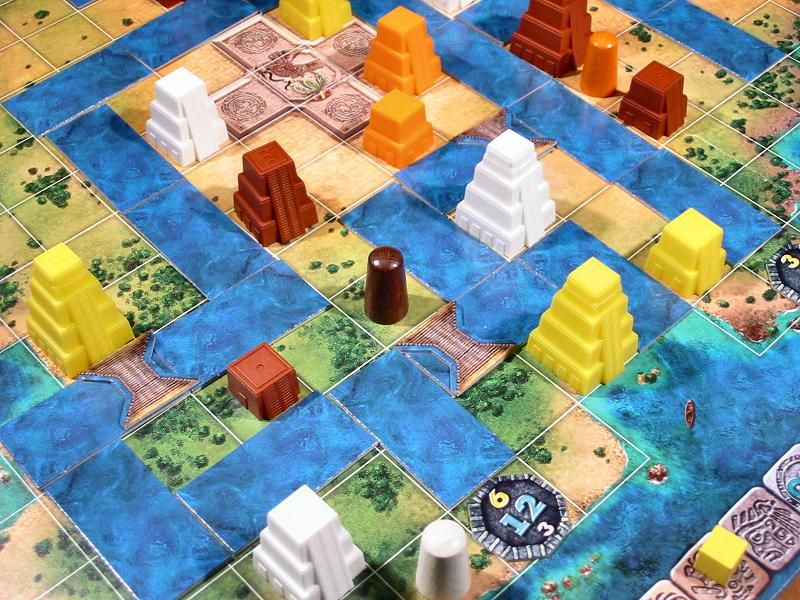
Mexica Replayability: Does Player Count Change the Fun?
Alright, let me tell you: Mexica is one of those games that begs for “just one more round.” But does it hold up with all player counts, or should you only dust it off for bigger groups? Well, I’ve played Mexica with 2, 3, and 4 players. Let me break it down by group size, because the vibe changes a lot!
With two players, Mexica turns into a tactical chess match. Every move can make or break the board, and you have tons of control. But, let’s be real, sometimes it feels less lively. I started talking to myself just to keep things spicy. If you love careful planning and hate surprises, this is your jam.
Bump that up to three, and you get the sweet spot. Now there’s enough chaos to keep you on your toes, but you can still follow everyone’s plots. My friends and I started bickering over canals and neighborhoods like we were dividing ancient empires. It gets personal, fast – but always in good fun!
With four, Mexica gets wild. The board fills up in a blink and you’ll curse your friends for stealing your prime real estate. It’s social, feisty, and sometimes a bit crowded. For folks who love a bit of friendly sabotage and don’t mind their plans going up in smoke, four is a blast.
Replayability stays high because the board changes every time, and your rivals will always pull new tricks. It never feels the same twice. Bottom line? I recommend Mexica if you want a game that grows with your group – but maybe warn your friends you’ll be yelling about island boundaries at 1AM!
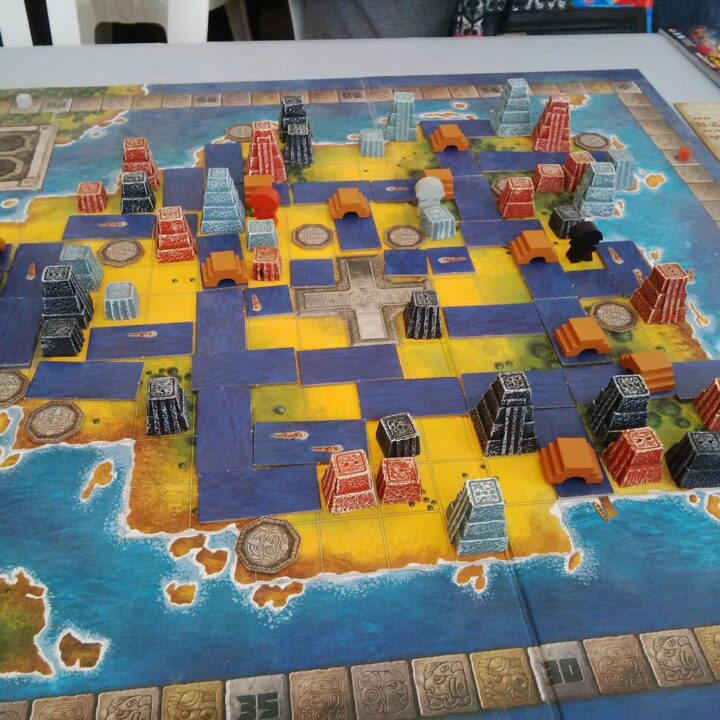
Conclusion
Well, that’s a wrap on my Mexica review! I’ve flooded canals, built temples, and argued with my friends over the best neighborhoods to snatch. Mexica stands out with its bold area control, chunky pieces, and plenty of head-to-head action. Sure, it takes a bit to teach new folks, and analysis paralysis can creep in, but you always feel in control—luck doesn’t steal victories here. The game shines with two, three, or four players, and still feels fresh after many games. If you like strategy, a splash of rivalry, and a board that looks like a geography lesson gone wild, Mexica deserves a spot on your shelf. It’s earned a place on mine. Review done—so who’s up for a rematch?

